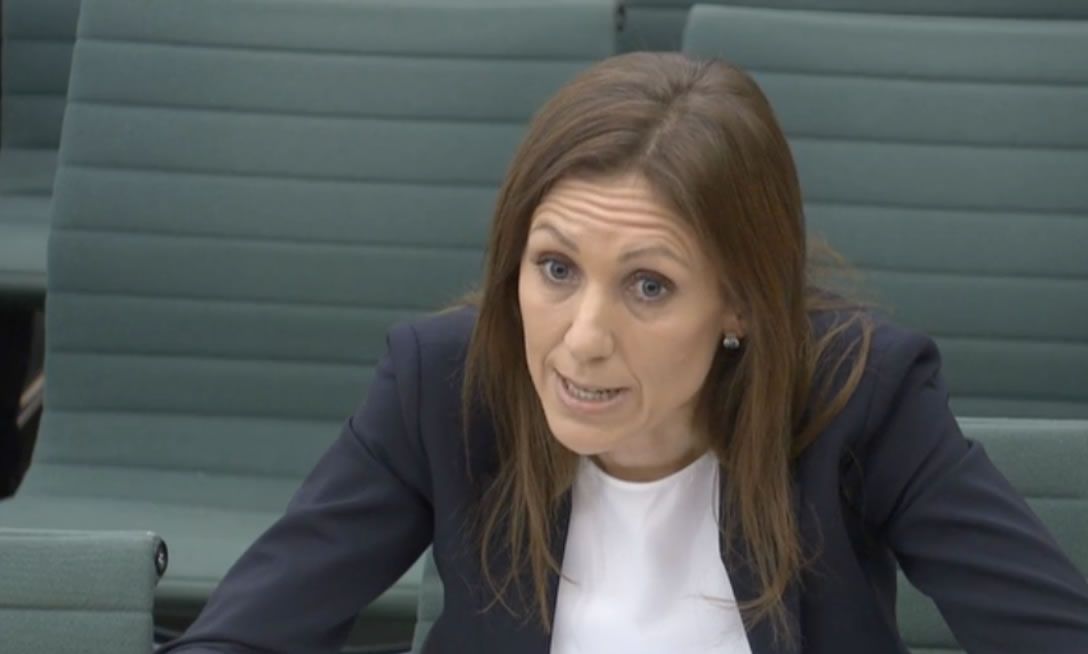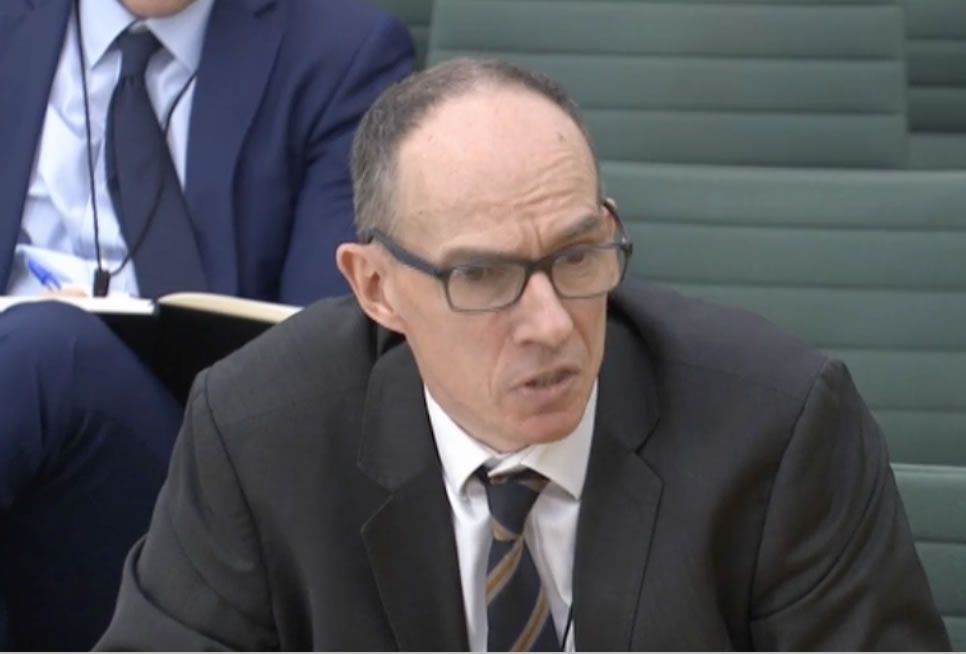Pound Sterling Falls on BoE Scrutiny - "It Appears that the Market was Looking for More"
- Written by: Gary Howes

- Professor Silvana Tenreyro (above) says she will be inclined to vote for a rate rise in near future
- Sir Dave Ramsden hints he would join colleagues in voting for a November rate rise citing September inflation reading but is more cautious than his colleagues.
- Governor Carney steers clear of monetary policy issues, focusses on Brexit, this disappoints currency traders
- Pound-to-Euro rate @ 1.1207, Pound-to-Dollar rate @ 1.3184
The Pound fell back against the majority of its competitors in a spectacular reversal in fortunes thanks to an appareance by members of the Bank of England's Monetary Policy Committee before UK parliamentarians.
Three members of the MPC appeared before parliament's Treasury Select Committee and markets wanted to hear that a second and perhaps even a third interest rate in 2018 - in addition to the already-expected November rate rise - were possible.
This is a hefty set of demands; but in the current political landscape Sterling requires a premium from the economy and Bank of England if it is to go higher.
October 2017 started on a dour note for the Pound with the Conservative Party’s conference generating doubt on the future of Prime Minister May’s tenure at the top, while nerves remain elevated over the prospect of a breakdown in Brexit negotiations.
But what September 2017 taught us is that the Bank of England still remains a key driver; we saw the Pound stage a strong rally against the majority of major global currencies as markets geared up for potentially higher interest rates in the UK.
“After a few weeks of highly charged political focus, we expect the narrative for GBP to slowly shift towards the November 'Super Thursday' Bank of England meeting," says Viraj Patel, analyst with ING Bank N.V. “Any hawkish signals could steepen the UK rate curve and we think GBP/USD at 1.35 is a strong possibility around the November BoE meeting.
Markets are already expecting a 0.25% interest rate rise from the Bank in November, but it appears the message they now want to hear is that a further interest rate rise might be due in 2018.
Sterling-bulls were left disappointed as any 'hawkish signals' proved hard to come by.
"It appears that the market was looking for more – for some hint that the next hike in rates would only be the start of a hiking cycle, not 'one and done'," says Marshall Gittler, Chief Strategist with ACLS Global. "Failing to get that assurance, investors chose to focus on Brexit, which is a never-ending reason to sell GBP."
New Members of MPC Won't Stand in the Way of a Rate Rise in November

Above: Sir Dave Ramsden testifies before Treasury Select Committee on October 17. (C) UK Parliament.
Damage to Sterling could have been worse, had the new appointments to the MPC - Sir. Dave Ramsden and professor Silvana Tenreyro - indicated they were nervous of raising interest rates in current conditions.
Both newcomers showed they would be willing to vote for an interest rate rise in coming months, with Ramsden maybe being the more cautious of the pair.
Sir Dave Ramsden cited Tuesday's release of UK inflation data - which gave a reading of 3.0% - as being reason to "respect" the MPC's suggestion that some removal of monetary stimulus in the near future is warranted.
This implies to us he would seek to not 'rock the boat' and would vote alongside colleagues for an interest rate rise in November, and is therefore on the margin positive for the Pound.
Professor Silvana Tenreyro meanwhile gave a firm committment to voting for a rate rise in the near future citing the continued reduction of 'slack' in the economy and a closing output gap.
"My view is we are approaching a tipping point at which it would be wise to remove some stimulus," says Tenreyro in response to a question asked by Chair of the Committee Nicky Morgan. "If data outruns are consistent with the output gap being close to 0, I would be inclined to vote for a vote rise in coming months."
The Pound rallied in early September after the Bank indicated that an interest rate in the near-future would be an appropriate response to the UK’s rising rates of inflation. The promise of higher interest rates attracts foreign capital as investors hunt out better yield which in turn drives demand for Sterling.
On exiting the quantitative easing programme, Tenreyro notes “my inclination will be to proceed very gradually” and let purchased bonds expire to run down the Bank’s balance sheet.
Get up to 5% more foreign exchange by using a specialist provider by getting closer to the real market rate and avoid the gaping spreads charged by your bank for international payments. Learn more here.
Carney Avoids Talk of Rates, Focusses on Brexit
Governor Carney's appearance - which followed those of Ramsden and Tenreyro - was devoid of Sterling-moving comment as focus appeared to centre on his expectations surrounding Brexit and the future of the UK’s finance sector should the EU try and grab too much business, notably Euro clearing.
The Governor says European central bankers are waking up to the potential impact of capital restrictions on Europe brought on by the imposition of unilateral shift in the relationship between the City of London and Europe.
Carney says, a “learning process is underway of the scale of some of the financial stability issues,” that Brexit might bring about.
“It doesn’t make sense for Europeans to pay tens and tens of billions of Euros in costs” just to have their Euros cleared outside of London noted the Governor adding the bank is “absolutely ready” to do what they can to engage in talks to ensure minimal disruption.
So while the direct implications of Carney's comments on the Pound are muted, he does point to why it is both sides of the Brexit negotiating table need to crack on and arrive at a mutually beneficial trading deal.
"It didn’t help that nearly every question that the Committee asked turned into a discussion about Brexit. As one MP said during the meeting, “the lure of Brexit is all consuming.” That’s why I’m fundamentally bearish on GBP over the medium term," says Gittler.




